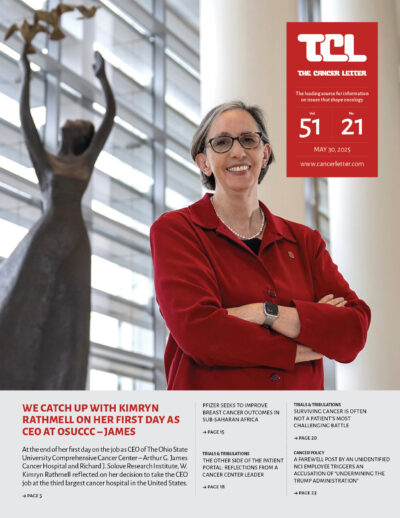

Cover Story
ClinicalTrials & Tribulations
By Wenora Johnson, Danielle Ripley-Burgess, Heather Hampel, Folasade (Fola) P. May, Anjee Davis and Richard M. Goldberg
Technological advances are transforming our understanding of cancer, accelerating the evolution of new treatment approaches. In the past decades, researchers deploying new techniques for analyzing DNA have extended our knowledge of inherited genetic abnormalities that can predispose a person to develop colorectal and other cancers.
In Brief


Funding Opportunities
Clinical Roundup


Trending Stories
- The Directors: Tom Lynch and Skip Burris on how NIH funding cuts imperil biopharma innovation—and cost patient lives
In a time of uncertainty, “react to the knowns, not the fear” - How MD Anderson and Texas Children’s made plans to build a $1 billion pediatric cancer hospital—one of the world’s largest
- In the Headlines: MD Anderson’s Pisters on doing “something gigantic for pediatric cancer”
- The faces of RIF: Staff members of NCI’s dissolved communications team gather for a farewell group photo
- As cancer scientists, we must change how we engage with the public on the impact of NIH cuts
What the scientific method obscures - In weekly vigils, current and former NIH staff grieve the impact of Trump cuts
The Saturday gatherings at NIH’s Metro station are part graveside service, part street theater





















